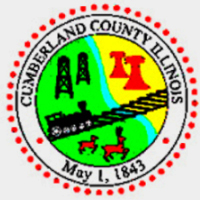WELCOME to the Assessors Page.
Feel free to check out some of our other menu options under the Assessor Menu Heading.
.
.
Cumberland County Supervisor of Assessments
Mckenzi Easton
PO Box 217
Toledo, IL 62468
Phone: 217-849-3831
Fax: 217-849-2183
Staff:
Sadie – Chief Deputy
Katy – GIS Clerk
Cumberland County Farmland Assessment Review Committee
Dale Tucker
Tanner Sowers
Chris Peters
Cumberland County Board of Review
Joe Mock
Bob Donsbach
Johnny St. John
.
.
What We Do:
The Supervisor of Assessments strives to administer an accurate, fair, uniform, and timely assessment of all property in Cumberland County in accordance with and as mandated by the Illinois Property Tax Code.
Our mission is to serve taxpayers in a professional, helpful and friendly manner. We dedicate our office to becoming a resource for the residents of Cumberland County by making sure taxpayers are receiving exemptions that they are entitled to, making sure that all property owners receive fair, efficient and equitable assessments, and promoting education and involvement in the assessment process.
The Cumberland County Supervisor of Assessments does not decide how much tax is to be paid and we do not establish tax rates. Taxes are predominantly determined by taxing districts in your area, with a majority of your property taxes being paid to your school district. Our job is to study the current market, created by buyers and sellers, and estimate value. Fair and uniform assessments help to distribute the burden of real estate taxes equitably.
The best way to maintain fair and equitable assessments is to physically inspect and reassess properties. Statutorily, this must be done every four years. Cumberland County is assessed in Quarter Quadrennials, meaning two townships are reassessed each year.
The reassessment schedule is as follows:
2020-Neoga Township & Cottonwood Township
2021-Springpoint Township & Woodbury Township
2022-Greenup Township & Crooked Creek Township
2023-Sumpter Township & Union Township
During your reassessment period, you will be mailed a Change of Assessment Notice at the end of the year. This notice will document any changes we made to your property and any changes in value. These changes are also published in the local newspapers. If you disagree with the updated market value, you have thirty (30) days from the date on the notice to file an appeal with our office. Board of Review Rules can be found under the Assessor heading.
.
.
Available Exemptions:
There are many different tax breaks available to our property owners. The exemptions listed below are not meant to be an inclusive list of all the exemptions available, but are the more common ones that are used in this county. It is the responsibility of the taxpayer to make sure they are receiving the correct exemptions. For more detail on any of the exemptions listed below or others available, feel free to contact the office.
General Homestead Exemption
This annual exemption, also referred to as the “Owner Occupied Exemption” is available for residential property that is occupied by its owner or owners as his or their principal dwelling place, or that is a leasehold interest on which a single family residence is situated, which is occupied as a residence by a person who has an ownership interest therein, legal or equitable or as a lessee, and on which the person is liable for the payment of property taxes. (35 ILCS 200/15-175)
Senior Citizens Homestead Exemption (PTAX-324)
This annual exemption is available for property that is occupied as a residence by a person 65 years of age or older who is liable for paying real estate taxes on the property and is an owner of record of the property or has a legal or equitable interest. This application must be completed every year. Taxpayers become eligible for this exemption on January 1 of the year they turn 65 and must come into the office to apply.
Senior Citizens Assessment Freeze Homestead Exemption (PTAX-340)
A person qualifies for this exemption if the person is at least 65 years old; has a total household income of $65,000 or less; and meets certain other qualifications. This exemption “freezes” the senior citizen’s property’s equalized assessed value (EAV) the year that the senior citizen qualifies for the exemption. The property’s EAV does not increase as long as qualification for the exemption continues. The tax bill may still increase if any tax rates are increased or if improvements are added that increase the value of the property. This application must be completed every year.
Homestead Exemption for Persons with Disabilities (PTAX-343)
This exemption is an annual $2,000 reduction in the EAV of the primary residence that is owned and occupied by a person with a disability who is liable for the payment of property taxes. The initial form, along with the required proof of disability, must be filed with the Chief County Assessment Office. The exemption must be renewed each year with proof of continued disability.
Standard Homestead Exemption for Veterans with Disabilities (PTAX-342)
This exemption is an annual reduction in equalized assessed value on the primary residence occupied by a qualified veteran with a disability. This veteran with a disability must own or lease a single-family residence and be liable for payment of property taxes. The amount of the exemption depends on the percentage of the service-connected disability as certified by the United States Department of Veterans’ Affairs. A qualified veteran with a service-connected disability of at least 30% but less than 50% will receive a $2,500 reduction in EAV; if the veteran has a service-connected disability of 50% but less than 70%, the annual exemption is $5,000; and if the veteran has a service-connected disability of 70% or more, the residential property is exempt from taxation.
Homestead Improvement Exemption
This exemption is limited to the fair cash value, up to an annual maximum of $75,000 (or $25,000 in assessed value), that was added to homestead property by any new improvement (adding a new room, deck, porch, etc.) or rebuilding after a catastrophic event, and continues for four years from the date the improvement or rebuilding is completed and occupied.
.
.
…………………………………………………………………………………………..
